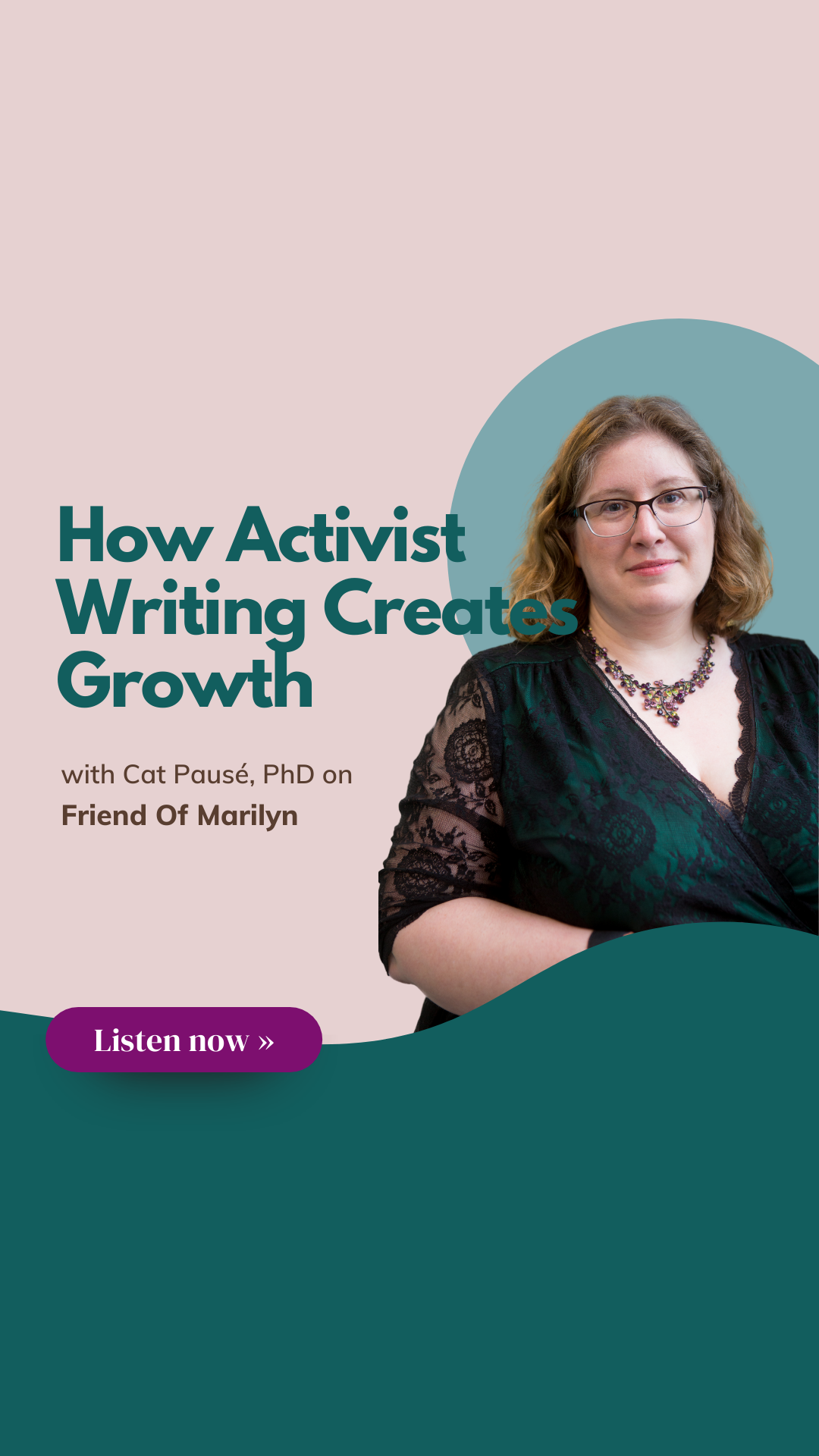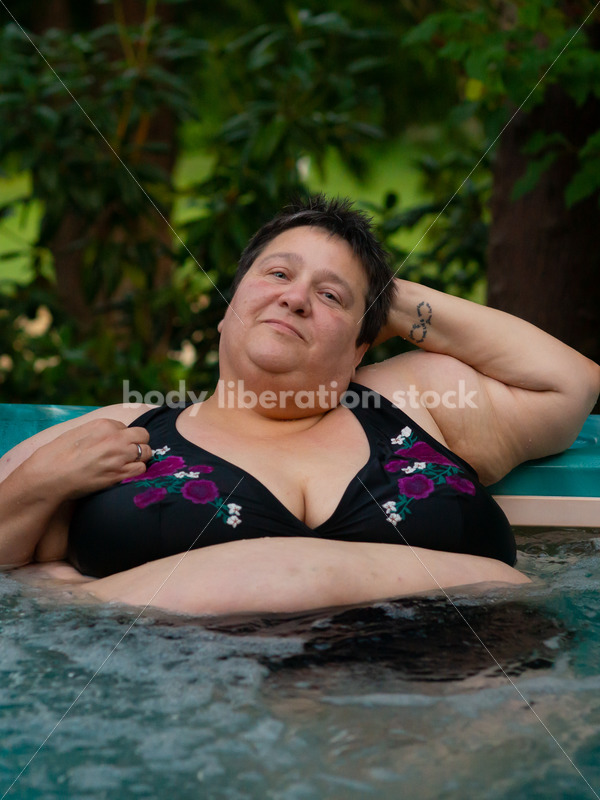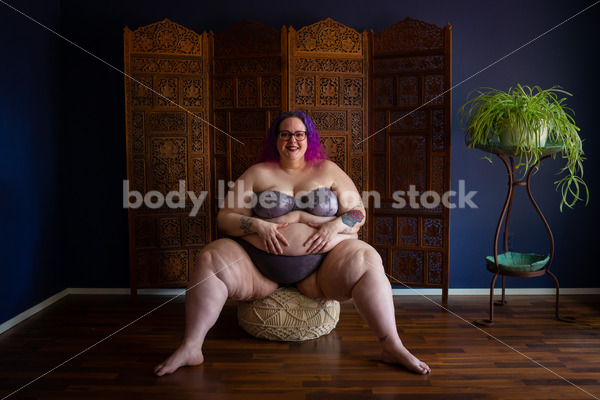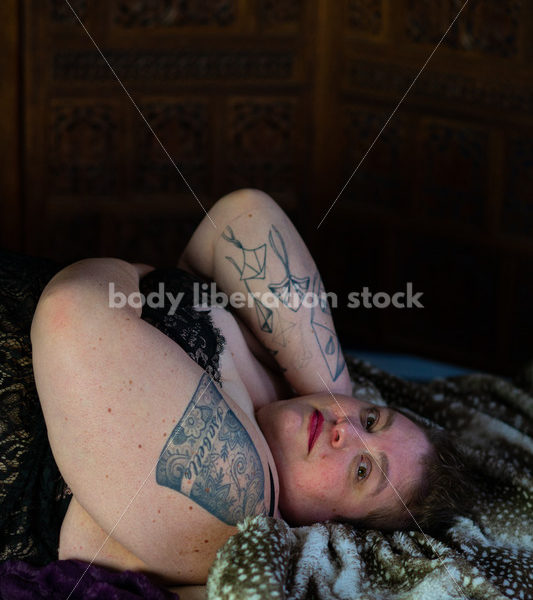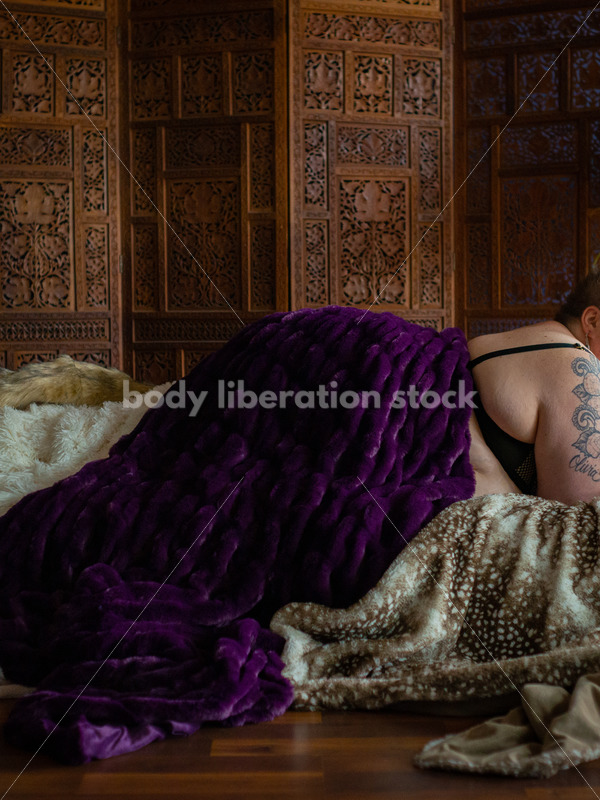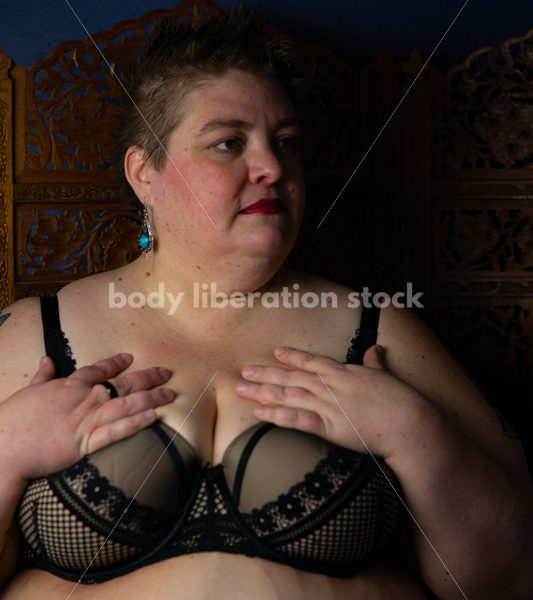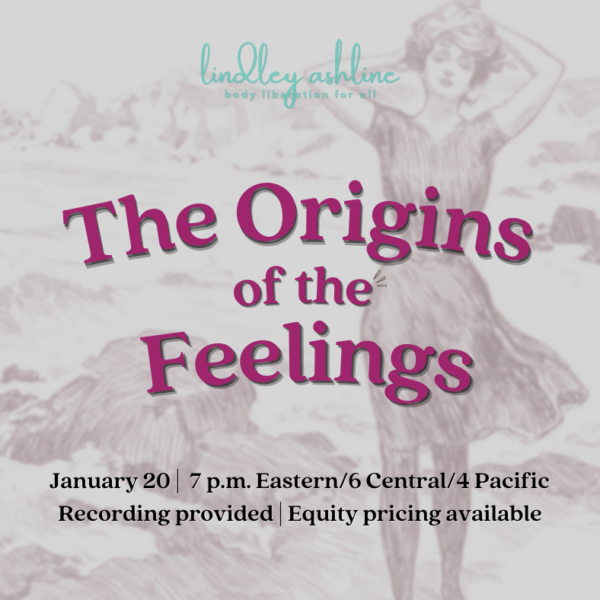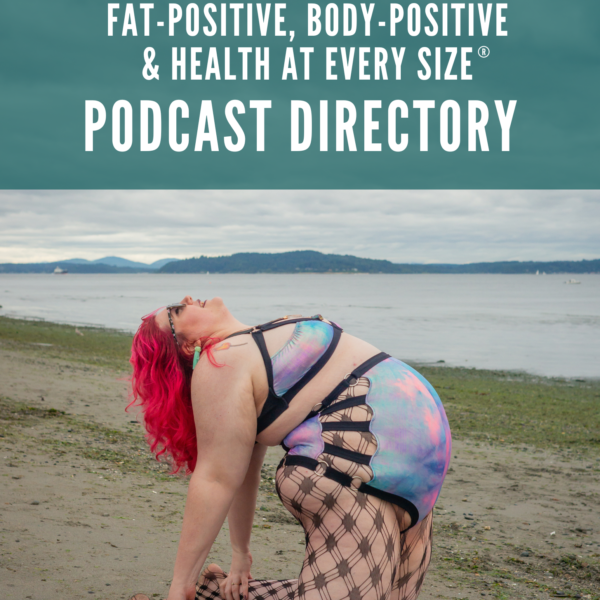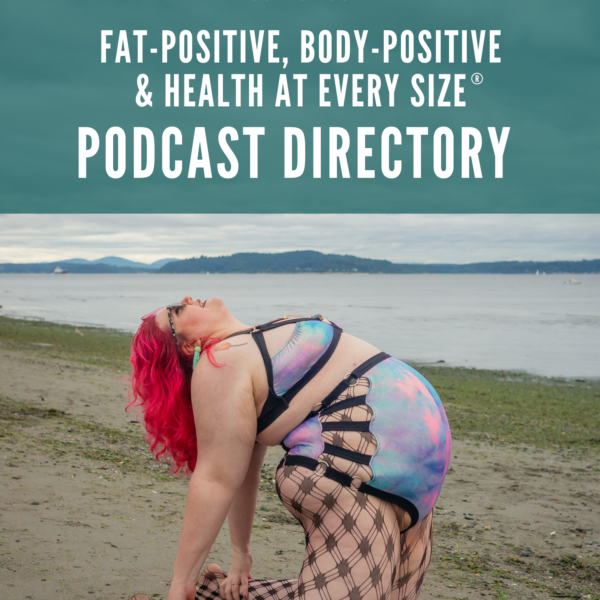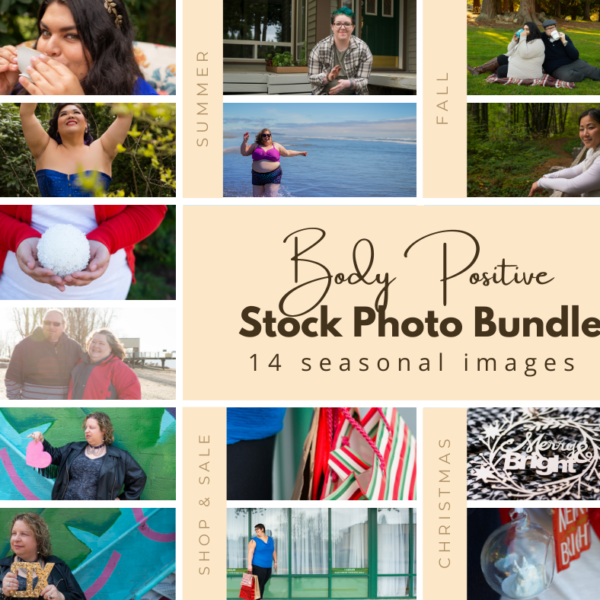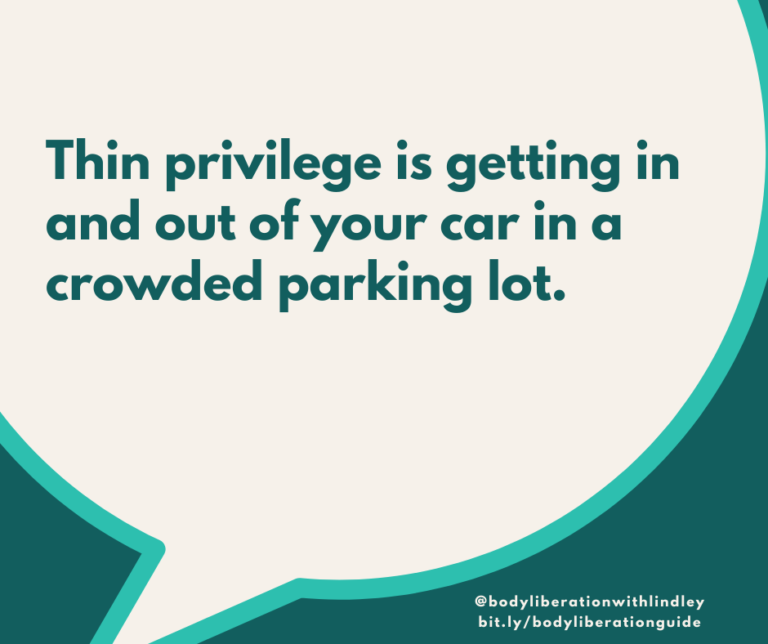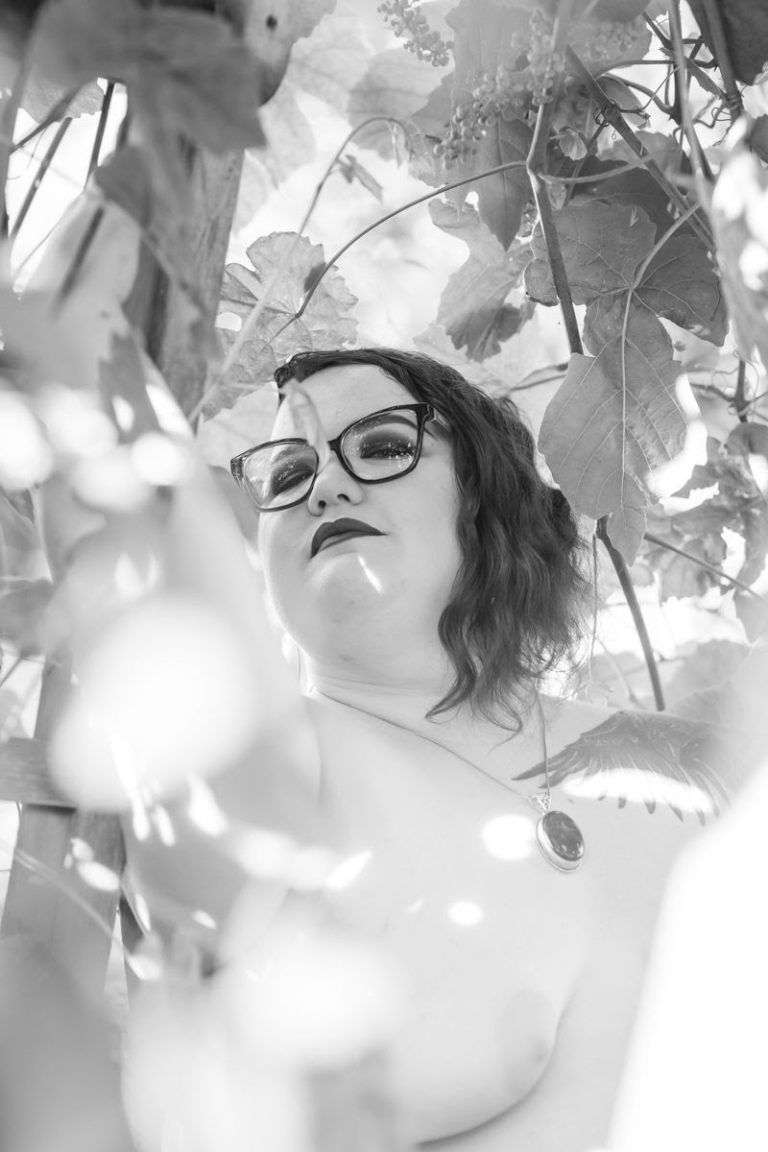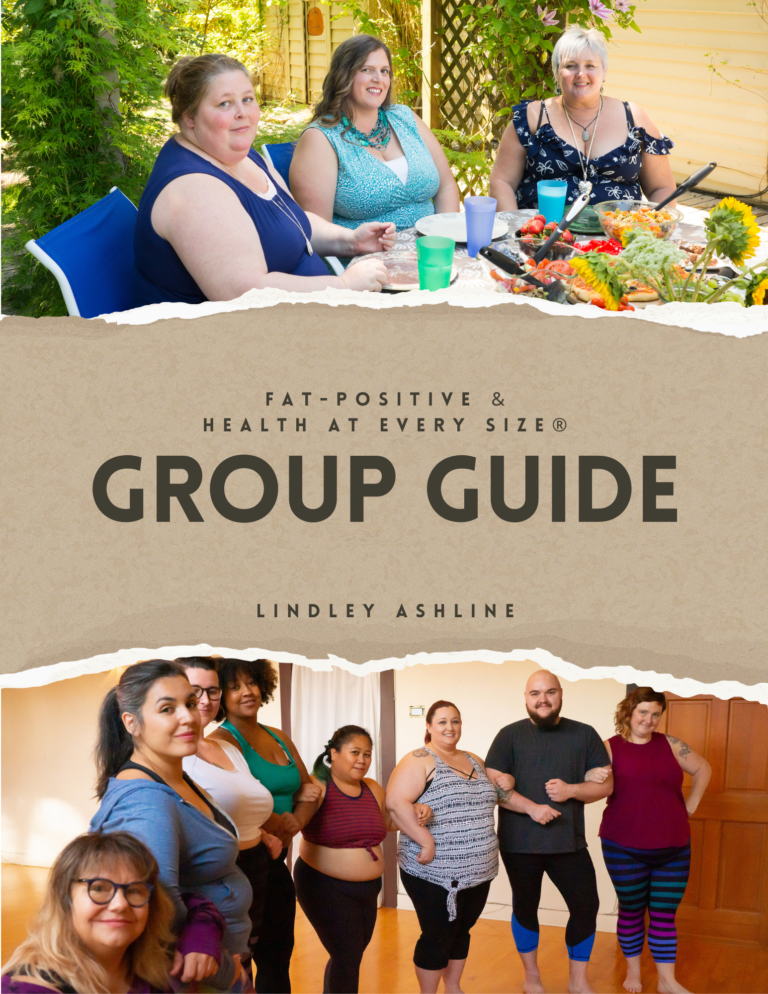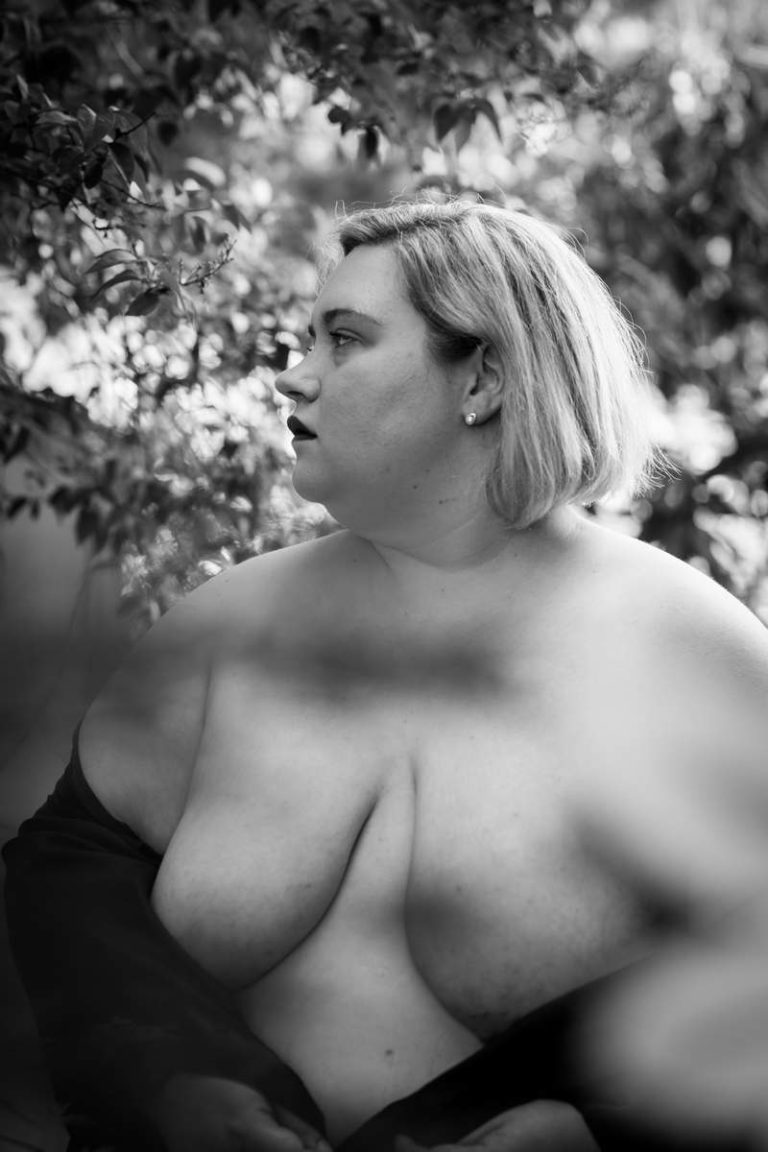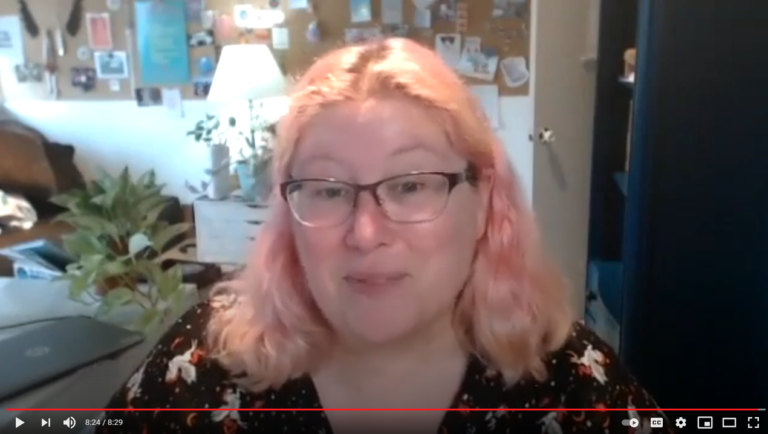Listen: How Activist Writing Creates Growth with Cat Pausé on the Friend of Marilyn Podcast
When I began writing the Body Liberation Guide, my weekly newsletter, I didn’t expect it to change my life. A compilation of the resources I was already creating, sharing some of my services and products for sale, easy peasy, right?
Committing to writing something original every week about body liberation meant that more than ever, I was thinking about body liberation and all its related concepts: body positivity, fat liberation, fat acceptance, and more.
In this episode of Friend of Marilyn, Cat Pausé and I talk about the to-be-revived Body Love Box, the Body Liberation Guide and how what you focus on moves you forward.
Episode Transcript
This program was produced at and first aired on MPR, Manawatu People’s Radio, with support from New Zealand On Air, MPR.
Support this show and others like it by giving a donation. For more information, go to www.mpr.nz/donate.
Cat Pausé: Welcome to Friend of Marilyn. My name is Cat Pausé, and this is a fat-friendly space.
Cat Pausé: Today on Friend of Marilyn, I talk a bit about the upcoming launch of the International Handbook of Fat Studies. I chat with Lindley Ashline about her fat activism work, and I spotlight a piece from Maz Hedgehog about fashion in the time of the pandemic.
The Routledge International Handbook of Fat Studies is being released on April 19, 2021. This is a handbook that I have edited alongside my friend, Sonya Renee Taylor, and we’re very pleased for this piece of scholarship to be coming out into the world. It has 29 chapters from activists and academics from around the world. And I strongly encourage you to ask your library to order a copy today.
Because it’s a handbook, it is more expensive than most. Publishers often anticipate only selling these to libraries. So normally, the physical copy of the book sells for around $500.00, which is out of the price of most of us, myself included. At the moment, it is currently on sale as an e-copy, like for Kindle or Amazon, for $52.00. And you can also find it cheap. If you don’t want to support Amazon, you can get the e-book directly from the publisher at again, a significantly-reduced price.
So if you’d like your own copy and are happy with an e-copy, I would encourage you to get it now. And I would invite all of you to join us as we launch the new handbook on the 19th of April, the New Zealand 19th. That’s the 18th—Sunday the 18th, for much of the rest of the world. You can find more information about the details for this global online launch, but I really hope to see all of you there.
Joining me today is Lindley Ashline, a photographer, writer and activist who advocates for body liberation and celebrates the unique beauty of bodies that fall outside conventional beauty standards.
Lindley, thank you so much for coming on Friend of Marilyn.
Lindley Ashline: Yes, thanks for having me. I’m so excited.
New at Body Liberation Stock
Cat Pausé: I know. I feel like I’ve known you for a really long time, but this is the first time I’m ever actually getting to chat with you, which is nice. I was an early subscriber to the Body Love Box.
Lindley Ashline: Yes, it ran for a year and a half, and it was a monthly subscription box that I put together that was all fat positive, some body positive, and some educational artwork, products and goods, and it was so much fun. And I eventually discovered that as much as I love doing it, I wasn’t able to do it sustainably in a way where everyone involved was making a living wage, so that everyone was getting a fair wage out of it, and still have it financially accessible to the people who are subscribing. That’s why I closed it.
Cat Pausé: Which is amazing. You have all those things lined up in the same space, at the same time, and in the same world. That’s incredible.
Lindley Ashline: Yes, it was such a cool experiment, and I’m going to be bringing the concept back pretty soon with some themed boxes. I’m going to have some holiday boxes, some birthday boxes, and things where you can just go buy them on the website individually.
Cat Pausé: That’s awesome. I’m glad to hear that actually because I was really sad when the Body Love Box monthly subscription stopped. I really enjoyed the opportunity to support other fat creators. That’s something that brings me a lot of joy. But I also actually, this might be the Catholic in me—the belief in needing to tithe, and so I choose to do that through financially supporting members of the fat community like GoFundMe’s, Patreons, and anything that comes in front of my face. I’m like, “Oh, Yes. I’ve got to give that fatty some money.”
But I also really enjoyed, in every box, there would be things that I would keep for myself. But then things that I knew other people would get a lot of joy out of. So it was really a love thing because every month, it was gift for me and a few little gifts for some friends or some friend’s kids. It’s just really, really lovely.
You’re still doing something. You’re still creating a weekly newsletter now, is that correct?
Lindley Ashline: Yes. I have a lot of different projects. I’m a photographer, a writer—
Cat Pausé: That is right. Your photography—there are so many things.
Lindley Ashline: Yes, there are so many things. I have a really short attention span, so it wouldn’t set really well. Because I temporarily get bored with working on my shop, I can go create some stock photos. And if I get bored with the stock photos, I can go in non-COVID-19 times. I can go take some client photos, or so many different things.
But one thing that has been consistent for me for just over a year is a weekly newsletter I’ve been producing called the Body Liberation Guide. And that has been such a transformative project, I think, both for me and for a lot of the people who subscribed, because at the time that I started it, I had 200 or 300 people on the mailing list from all of my previous endeavors. And after a year, I have a little over 3,000. And those people come in from all over the place. And they come in from all over the place geographically, and all over the place on the internet. But also, all over the place on their own journeys in body image and fat acceptance.
The newsletter is pretty radical. And so people come in, they may have encountered me in a relatively non-radical context. Say, they found—I offer some free things on my website. Maybe they downloaded some stock photos of people in large bodies, and may end up on the mailing list. This may or may not be what they’re looking for because it is pretty radical. So maybe they just wanted a stock photo for their business, and suddenly, they’re hearing about really radical fat activism concepts, and my digging deep on whatever topic I’ve chosen for the week.
Some people cannot hit that unsubscribe button fast enough. And some people are like, “This is my jam.” And they stick around, and they respond. I get so many responses to these because I’m generally talking about either things that people haven’t considered before, or something that they’re like, “Oh, I’m suddenly really interested in this.”
And so the level of engagement people have is really cool because I’m just digging deep into whatever topic, and it’s almost always fat acceptance-related. But I’m digging into power, I’m digging into politics, I’m digging into body image. I’m digging into all these things from my fat lens.
And it’s so cool to watch people come along with me.
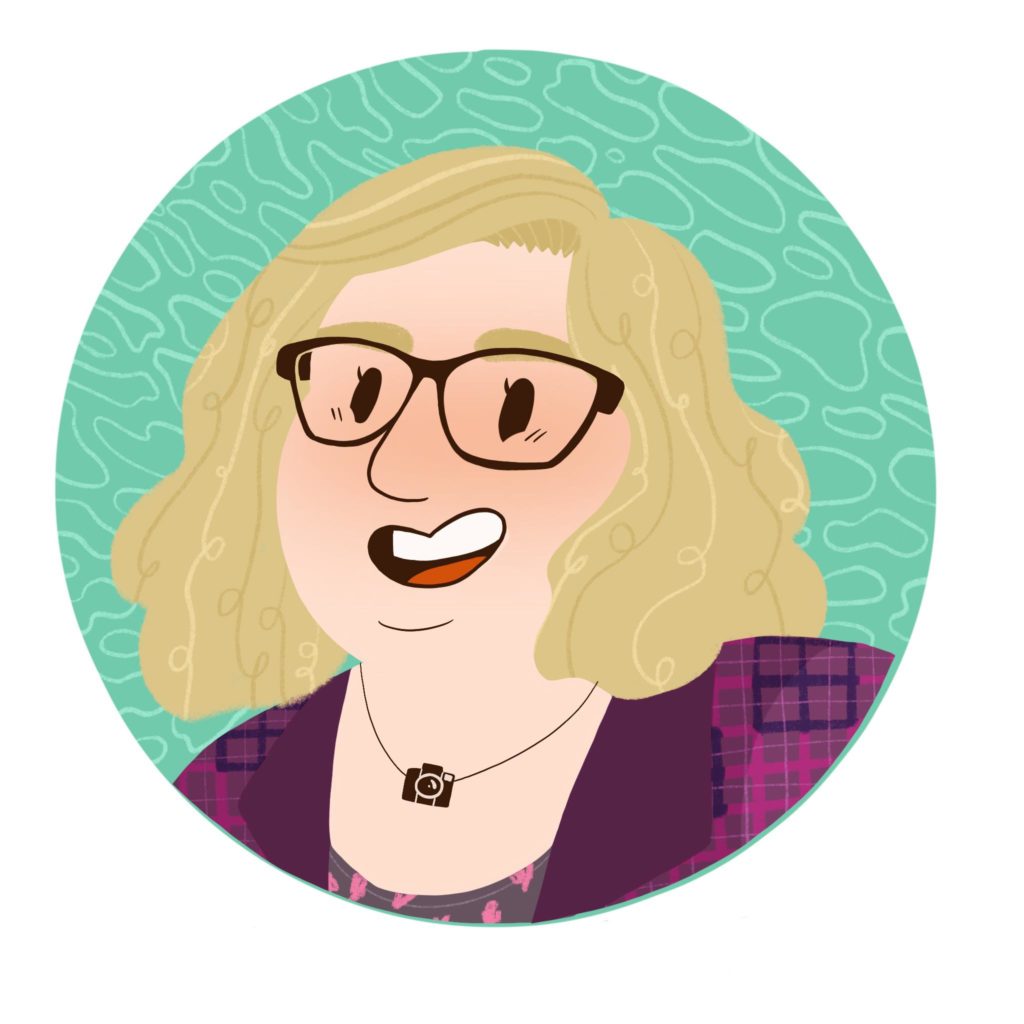
Every Monday, I send out my Body Liberation Guide, a thoughtful email jam-packed with resources on body liberation, weight stigma, body image and more. And it’s free. Let’s change the world together. Subscribe »
Cat Pausé: Doing something like that on a really regular basis would definitely mean that it’s one of the dominant things in your world. And I say that with confidence because I have a weekly fat-positive radio show that is a dominant thing in my world. Have you found that it’s changed the way that you think about the liberation work that we’re all engaged in, or your own relationship with your own body?
Lindley Ashline: Yes, it’s been absolutely—I think I used the word transformative [unintelligible 00:09:01] had been because when you make that kind of commitment—my commitment that I made for myself is that I was going to do this for a year, and then I would see if I wanted to keep doing it because I knew it was going to be a lot of work.
Cat Pausé: Yes, re-assess, to see if it was sustainable.
Lindley Ashline: Yes, to produce something substantive every week, not just, “Oh, here’s a repost of an Instagram post. Here’s the text from an Instagram post.” But I’d do something substantive. And it has taken over my life in a good way because it means that the wheels are always spinning now. The wheels are always turning like, “What am I going to talk about this week?”
And I’ll be honest—a lot of it is—somebody said something on the internet this week that I disagreed with. And so it will be my response to that. It would be the core of that. Or something I saw in the news. I don’t do a lot of current events because I don’t want to be the person who takes in whatever tragic fat-phobic thing is happening in the news this week in response to it. There are other people who do that brilliantly.
Cat Pausé: Yes, and that’s exhausting, to try to do that, day after day, week after week. I think a lot of people don’t really appreciate how easy it is to burn out if that’s the mire that you’re in all the time—the negative stuff, the hard stuff and the oppressive stuff.
Lindley Ashline: Yes, and so I’m not as interested in current event responses as I am—although like I said, occasionally, that would be an inspiration. But it will just be something that I want to dig into that week. I look at a lot of things through a lens of power. Who has the power in this situation? As a fat person going to do the doctor, who holds the power? Who makes the decisions? Why is that? Why is this power [unintelligible 00:10:47].
I talk about a lot of these things that it forces me to examine. And so I have grown so much, and I can speak so much more confidently now both about my opinions on things, but about the topics themselves because I feel like I’m uncovering new things every week, and it’s the coolest feeling.
So it’s just having that commitment. Yes, it takes over your brain. And some weeks, that’s exhausting. And every once in a while, I’ll do a repost. I’ll be like, “Not as many people are open to this one, well now, you get to see it again. So more people get to see this.”
But in general, almost every week, I have something important to say, which I never thought would be me. I never thought that I would be any kind of leader in the fat acceptance movement. I didn’t think I have anything new to say. And now, every week, every Friday, I sit down and I go, “I’ve got something to say, and you get to hear it” very vehemently.
Cat Pausé: Which I think is really great because personally, for me, I don’t think the fat liberation movement needs leaders. I don’t want us to have leaders. That is a useful way of thinking about social structures for my personal perspective. I am so excited the more fat people that are becoming really active in their own corner of fat liberation. Every new podcast, it started every new Instagram account, [it goes out in] every newsletter. Whatever it is gets me just so excited for more and more fat voices to be coming into this conversation in whether it’s a voice that lots of people are hearing, or that only one or two other people are hearing because what we’re doing is we’re building a fat epistemology. We are building a work of knowledge that has been created by fat people about fat people for fat people. And that’s so incredibly valuable in the liberation work that we’re doing.
New in the Body Love Shop
I appreciate you mentioning that sometimes you just have to rerun one because one of the other questions that I would have for you is about how you make it sustainable because I think that that is something that a lot of activists struggle with—how do you make something sustainable, so you can keep going on with it long-term, that it isn’t something that is short-lived or where you burn out early quickly. So I wasn’t sure if you had other tips that you might be happy to share with those [listing] about ways that you’ve made it sustainable for you.
Lindley Ashline: Yes, I do. Really quickly, I want to touch back on the leadership thing. That was so interesting. Because I don’t know that leader is the right word here. Because I think if I wanted to be a leader, I would be saying, “This is the direction we have to go. This is what we need to focus on.” And I think I’m not looking at that so much as being out loud and active in a way that other people are attracted to, if that makes sense. Being prolific in the community in a way that is useful to other people.
But yes, I have burned out many, many times in my life, and burned out hard. I live with an anxiety disorder, so I am more prone to it, I think, than maybe some other folks. And I am starting to look at it with a resource lens now. The reason that I can produce an Instagram post every day and the reason that I can do this newsletter every single week is that I have time. I have the resource of time. I have the resource of brain cycles. I don’t have a full-time job. I don’t have children. I’m not caring for an elderly family member. I don’t have a lot of the major life commitments that might stop me from doing that.
And so if I am at a point where I don’t have the resources, then I have to re-evaluate that and say, “Maybe, I’ll do every two weeks.”
And so I’m very much looking at things through a resource lens these days, like, “What can I accomplish with the resources that I have?” And sometimes that means re-running. Sometimes that means taking an Instagram post and fleshing it out a little bit more and letting that be good enough. And sometimes it means digging back into an instant messenger conversation [unintelligible 00:15:28] something out of that, or it means going back to my writing in scratch pad where I keep all my notes.
And sometimes it’s just acknowledging you’re not going to be a genius every week. You’re not going to be a genius on Instagram every day. Sometimes you’re going to be, “Here’s a re-run. Deal with it.” And that’s fine because the more you admit that you’re human, the more you give other people permission.
Cat Pausé: Yes, I think that’s 100% right. I think those are all really good tips. And I also appreciate you acknowledging the place of privilege that you’re working for because that does have a huge part to do with it. It’s similar privileges that I share as well. I don’t have a partner. I don’t have children. And that means that there is not just time, but also more emotional and mental head space and energy to focus on something like producing a weekly show or a weekly newsletter.
And Lindley, how can people who are listening, who aren’t currently getting your newsletter, how can they go about signing up to do so?
Lindley Ashline: You can find that on my website where all my other activities either BodyLiberationPhotos.com, or bit.ly/bodyliberationguide.
Cat Pausé: Brilliant. Thank you so much for coming on the show today. It’s been such a treat to chat with you.
Lindley Ashline: Yes, thanks for having me, so much.
New at Body Liberation Stock
Cat Pausé: In the spotlight today is a piece from Maz Hedgehog. This one was published on AZ Magazine. It’s entitled, Fat Black and Myself: Fashion in the Pandemic, and was published on January 25, 2021.
“Style is a kind of speech. Long before I open my mouth, my physicality speaks volumes. So much of this is outside of my control, with much being dictated to the viewer by thousands of micro messages transmitted down the years. My blackness reads mammy and savage. My fatness reads misery and gluttony. My clothes sit alongside these, allowing me to speak for myself.
So I dress deliberately, to communicate who I am and what matters to me. Each outfit is carefully coordinated and charmingly understated because I am my mother’s child. She spent years teaching me the value of putting my best foot forward. I look femme because queer femininity matters to me because the creativity and warmth and humor and care that characterize my femininity matters to me. I embrace tailoring because I grew up on period dramas, and part of me wants to be a mixture of Hercule Poirot and Mr. Darcy.
I am not, however, so naïve as to think my motivations are pure. I have absorbed the same oppressive messages as everyone else. I know that each outfit is also driven by a desire to be one of the good ones, to be admitted, however conditionally, into spaces that dole out social power and economic security. A black blouse and pencil skirt read professional, dependable, unassuming. They tell my employers, coworkers and clients that I am a serious person who can safely handle whatever work I’m given. My femininity makes my queerness less immediately apparent to the casual onlooker, especially when I’m single. My tasteful nude lip and sharply-winged liner puts non-queer people at ease, lets them assume I pose no threat to their social order and spares me some violence in the process. My suits, from the grey cotton to the orange polyester to the purple velvet, mark class. They allow me to entertain a fantasy that maybe I can partake in some small part of the status enjoyed by men like Poirot and Darcy. If my white shirt is crisp and my trousers pressed, perhaps I will feel a little less powerless.
Sometimes I wish I were more comfortable being underdressed, and I often fantasize about being more masculine, but so much of my livelihood depends on making thin, white people comfortable. So much of who I am has been constructed around making thin, white people comfortable. It’s useful and it’s exhausting, and I wish I didn’t need to do it. Even if I stopped, unpicking the damage done by a childhood and adolescence spent surrounded by white people is a lifetime of work.
Back in March, the pandemic forced the world into lockdown. For the first time in my working life, I was working from home. To maintain some semblance of structure and normality, I dressed every morning as if I was going into the office—in drab blacks and muted blues. Every morning, I caught my reflection in the dining room mirror, and something inside of me, something small and peripheral but sensitive, broke. There I was, sat alone in my home, and still, I let my appearance be dictated by the tastes of people I neither like, respect nor even see. So I started going to work in pajamas instead. I wasn’t seeing anyone, so why get dressed at all? I expected it to be freeing, but it made things so much worse. The previously neat division of work me and normal me broke down, with panic around deadlines and client meetings invading every moment of the day and night. By the fifth late night anxiety attack, I knew something had to change. I couldn’t end the pandemic, or make my job less stressful, or guarantee my family’s health, but I could get dressed. It was small, but that tiny scrap of control made the loss of other coping mechanisms—theatre, life poetry, cafes—bearable.
Somehow, in the process of analyzing how much of my look is shaped by whiteness and thinness, I had forgotten how much I love clothing for its own sake. Despite workwear limitations, my wardrobe is curated such that I have outfits for almost any occasion, in tones muted enough for the office and prints bright enough for a Nigerian wedding. I had forgotten that I always found small ways to stay myself, even in as oppressively corporate a sector as financial audit, my nails are longer than is strictly professional, my hair changes as often as I feel like, and my earrings are as big and bold as I can get away with. Being out of the office gave me the room to listen to myself, away from the frozen smiles of managers confused by a switch from box braids to kinky twists, and the barely disguised contempt of a client unwilling to respect a fat, black person. In my dining room and my kitchen and my bedroom, I could speak to myself, speak for myself in a way previously inaccessible to me. I wore the African prints previously saved for special occasions, the crop tops that otherwise terrified me. I got the undercut and purple box braids I had always wanted, bought the waistcoats and turtlenecks I felt too fat/busty for and my lips are red or purple or nude, depending on what takes my fancy.

Every Monday, I send out my Body Liberation Guide, a thoughtful email jam-packed with resources on body liberation, weight stigma, body image and more. And it’s free. Let’s change the world together. Subscribe »
My relationship with my style still isn’t pure. I still wonder if being perpetually overdressed is healthy and if my feminine presentation is my cowardice than celebration. But I don’t think purity is possible—expecting something as inarticulate as my clothing to perfectly reflect who I am is unrealistic. Expecting myself to know who exactly I am is unrealistic. Trying to find a sense of self to be precise or clearly defined or entirely divorced from the white, thin male gaze is a fool’s errand. All I can do is keep growing, keep learning, keep trying to find myself both inside and outside of my wardrobe. My perception of myself may always be filtered through this deeply anti-black, bi-phobic and fat-phobic society, but I can continue to fight for a sense of self, built more around freedom than acquiescence. This fight, with its ambivalence and complications, doesn’t make what I do now any less worthy. Something doesn’t need to be sure to be good. Style is, after all, a kind of speech—incomplete, imprecise and beautiful.”
Cat Pausé: Thanks for listening to another episode of Friend of Marilyn. Friend of Marilyn is brought to you by Manawatu People’s Radio, 999AM. If you would like to contact the show with questions, comments, concerns or suggestions for topics or guests, you can e-mail us at [email protected]. You can also find us on Twitter, Tumblr, Facebook, YouTube and Instagram.
Cat Pausé: Closing the show is [Kingfisher] with California Day.
If you’re a fan of MPR, listening to our podcasts and livestream has never been easier. Just search for AccessMedia.nz on the AppStore or Google Play, and download the app with the Kiwi fruit logo. Once you’ve got it, pick Manawatu People’s Radio from the list of stations, and go find your new favorite show.
Hi there! I'm Lindley. I create artwork that celebrates the unique beauty of bodies that fall outside conventional "beauty" standards at Body Liberation Photography. I'm also the creator of Body Liberation Stock and the Body Love Shop, a curated central resource for body-friendly artwork and products. Find all my work here at bodyliberationphotos.com.

